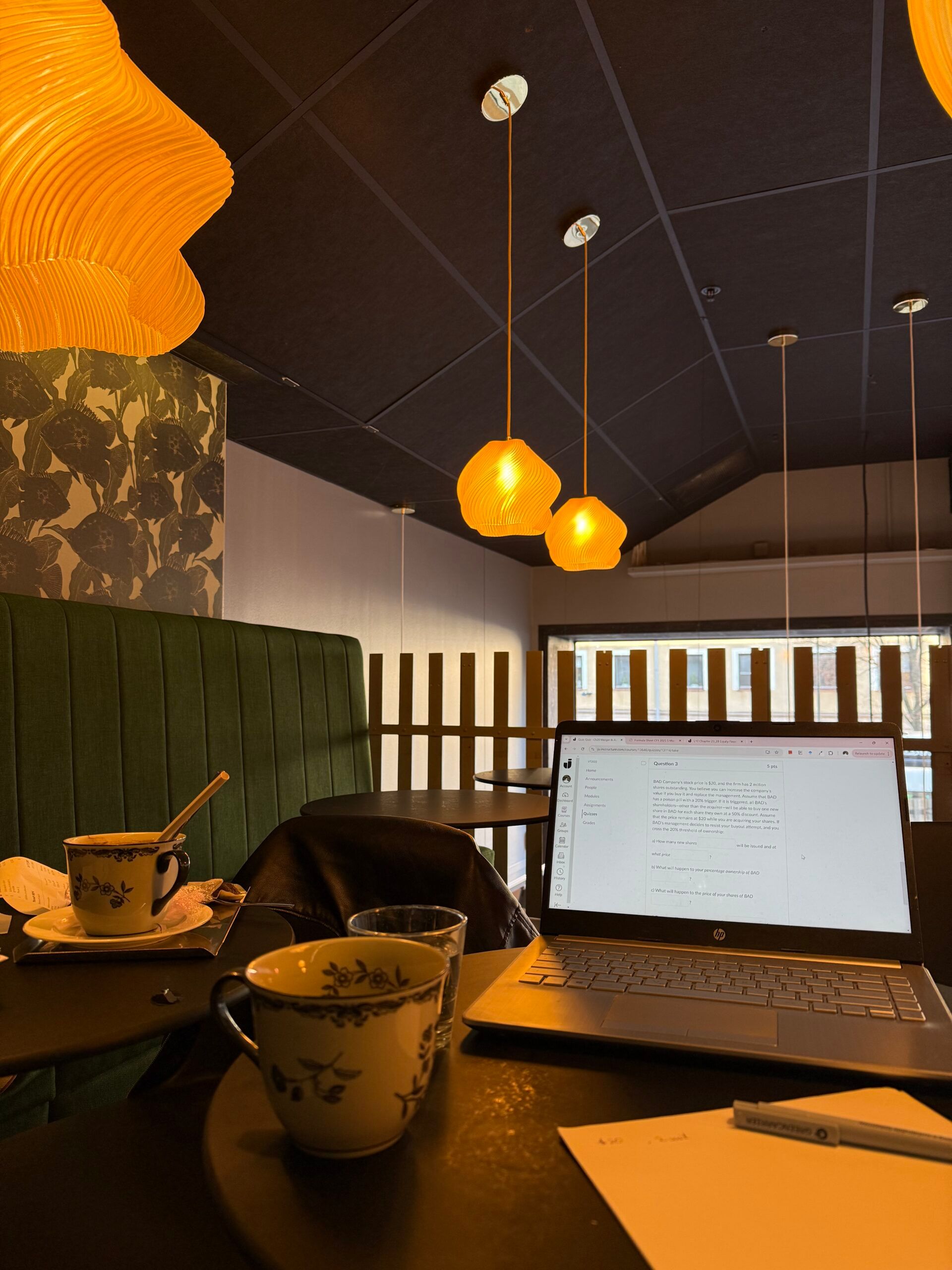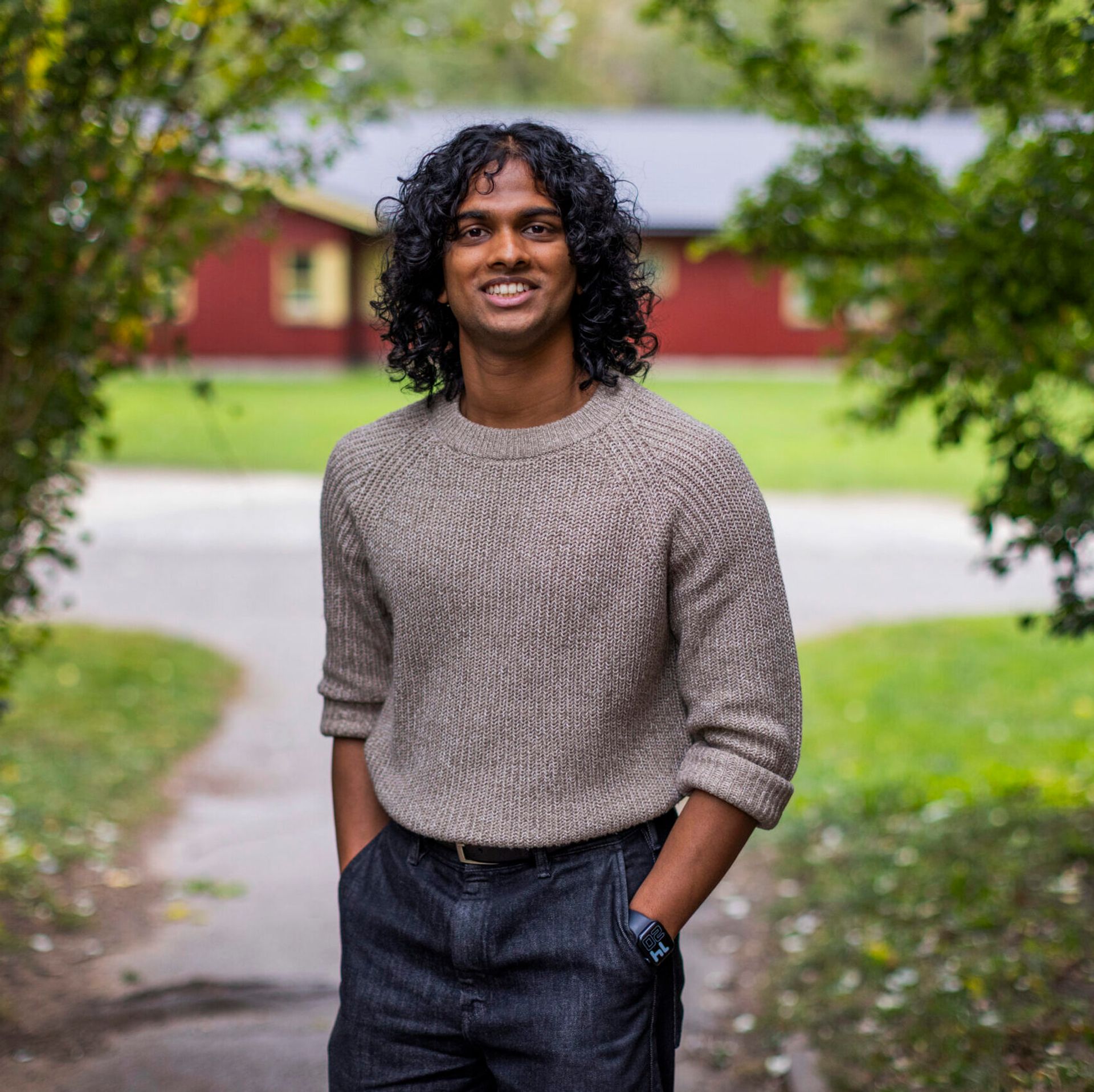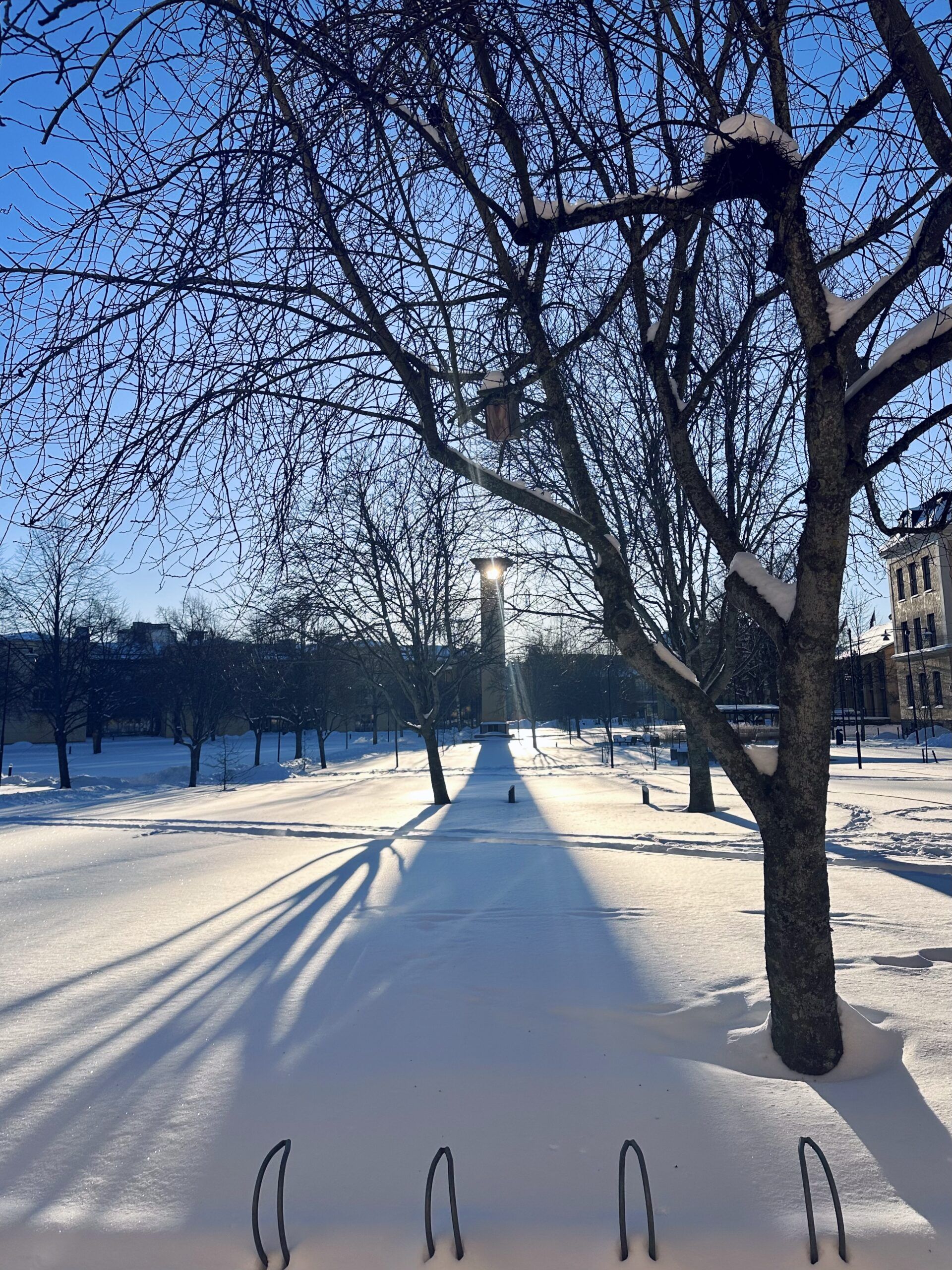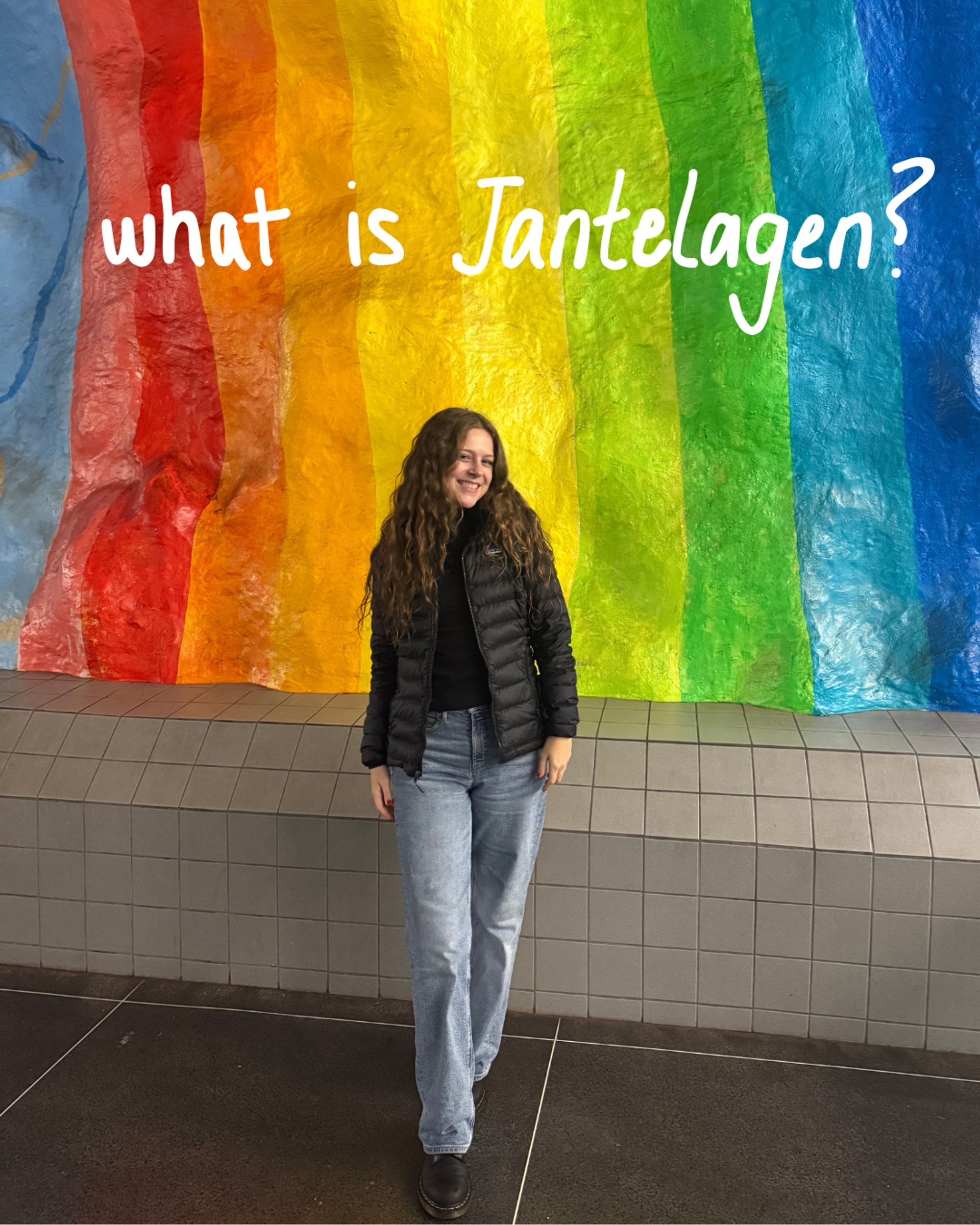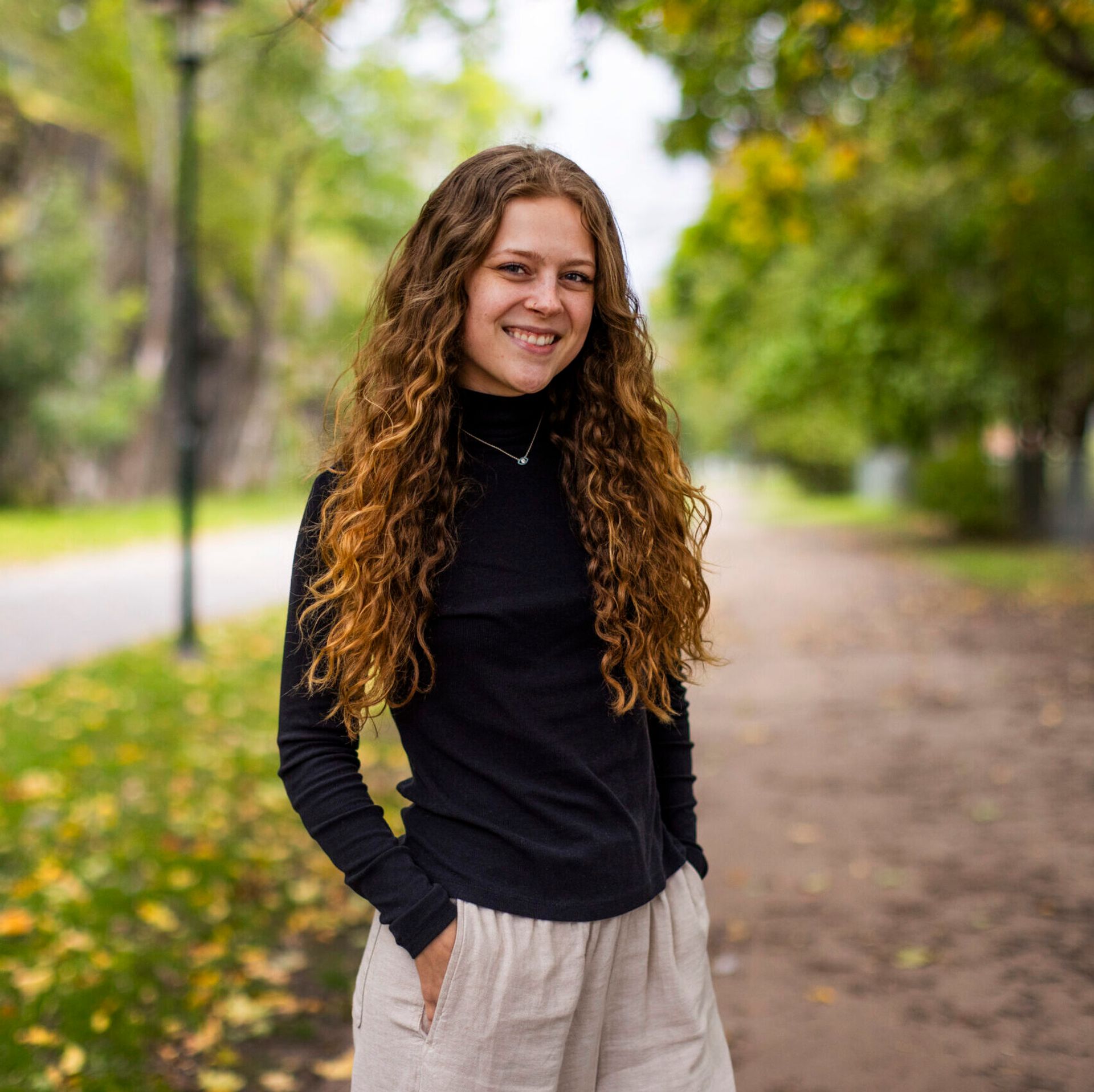
Written by Ravindu
05 Aug 2025
“Hi! My name is Chris. I’m studying Marketing Management at Jönköping University (JU), and I’m an international student from Greece!”
When I sat down virtually with Chris to talk about his experience of studying in Sweden, it wasn’t just to gather content for this blog. It was also for me to gain a deeper understanding of what it’s really like to live and study in Jönköping. I’ve never visited the city myself, and I’ve noticed there isn’t much written about the student experience at Jönköping University. That’s exactly why I wanted to hear directly from someone who’s living it.
The conversation that followed was full of honest insights, reflections, and practical advice. And, if you’re a prospective student considering a move to Jönköping, I hope this post gives you a helpful glimpse into what life might look like on the other side of your application.
So Chris, Why did you choose to study in Jönköping?
When Chris set out to study abroad, Sweden wasn’t even necessarily the only country on his radar.
“I knew I wanted to study abroad in general but never had any specific country in mind. I knew I wanted study in Europe, that’s the only thing I knew. So, I was looking around for degrees which didn’t have tuition, and bachelor’s in marketing…” But finding a bachelor’s program in marketing taught entirely in English? That turned out to be harder than expected. Surprisingly, Sweden offered only one such program — and it was in the small lakeside city of Jönköping!
As he kept searching and double-checking if he’d missed anything elsewhere, Sweden — and specifically Jönköping University (JU) — kept reappearing on his list. “I kind of relate to that,” I told him during our chat. That same lack of options for the exact program I wanted is what eventually led me to Skövde.
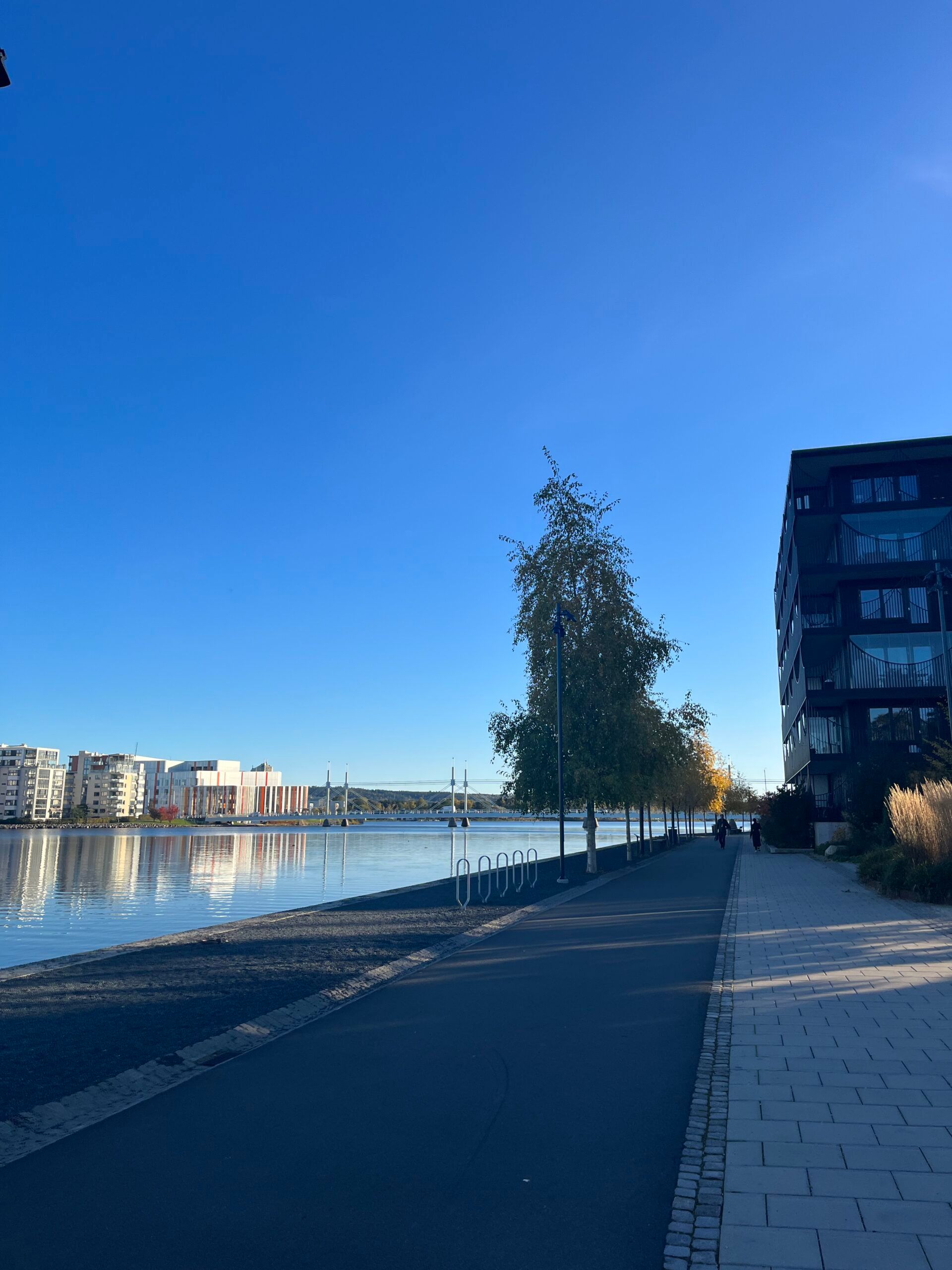
Were your first impressions of Jönköping similar to what you expected?
“When I first found the degree, I was really happy about it. Then I looked into the city and I was like “okay what is this university? What is this city about?” and right off the bat, I saw that it was a very small city, and I was not used to that at all!”
Chris comes from Athens, a bustling metropolis of over three million people. So, moving to a town like Jönköping — walkable, peaceful, and significantly smaller — took some mental adjusting. “At first, I was concerned,” he admitted. “But then I started rationalizing it in my head: it’s a student city, there’s always going to be something happening.”
What surprised him most was how much he grew to appreciate the calm. “I have never experienced living in a small place… It feels like the city itself was designed for families and elderly people, which has its perks though, it’s a city that’s extremely walkable, that extremely green, that has so many places to walk around and see things. We’re right next to the second largest lake in Sweden… The water element is very evidently affecting the entire vibe of the city, because you go to these places, especially when the weather is nice in the summer. you have a place to just sit and enjoy the vibe. like I really want to explain it.”
But do you have an IKEA? I feel like thats a good indicator of how significant the city is
“Yeah, we have an Ikea, I actually live right next to it,” He said, point out his window into the streets ahead. “I think if you look at it from the Swedish standards, Jonkoping is definitely like a hub. Like geographically with like the lake, but also by population. I have everything I need, all the necessities, like you said, from Ikea to furniture to thrift stores or like any niche things. We also have markets once in a while. The only times I would have to go to another city to get are clothes mostly, from Gothenburg. That’s the good thing, tis pretty closed to Gothenburg.”
I asked him how transportation is like to the two largest Swedish cities, Stockholm and Gothenburg.
“So, Gothenburg doesn’t have a train connection from Jönköping., you would have to take a bus that around 2-2.5 hours, whereas Stockholm by train would be 3.5-4 hours. And that also not direct.”

So how does accommodation work in Jönköping university?
One of the biggest concerns for many international students is accommodation. For Chris, JU’s housing guarantee for international students was a game-changer. Unlike most universities that only offer guaranteed housing to non-EU students, JU extends this to all internationals.
But, it also comes with a small twist. “So after I got my admissions the told me that these are all the accommodation option we offer for student and you can rank them, and as soon as you arrive to the country, we will tell you which one you have been selected for. So I had no idea, pretty much, where I was going to stay, until the moment I arrived to Sweden.”
Chris has now completed two years of his bachelors degree, but he hasn’t stayed in the same accommodation throughout his time. “So I started off, my first accommodation in a shared accommodation with 2 other guys. It wasn’t the most pleasant experience to say the least, but there are like 200-300 students living in that neighborhood, so it was a really big student community, so I would say the perk it was that I met so many people there. I lived 2 mins aways from my closest friends, that was the coolest thing ever!”
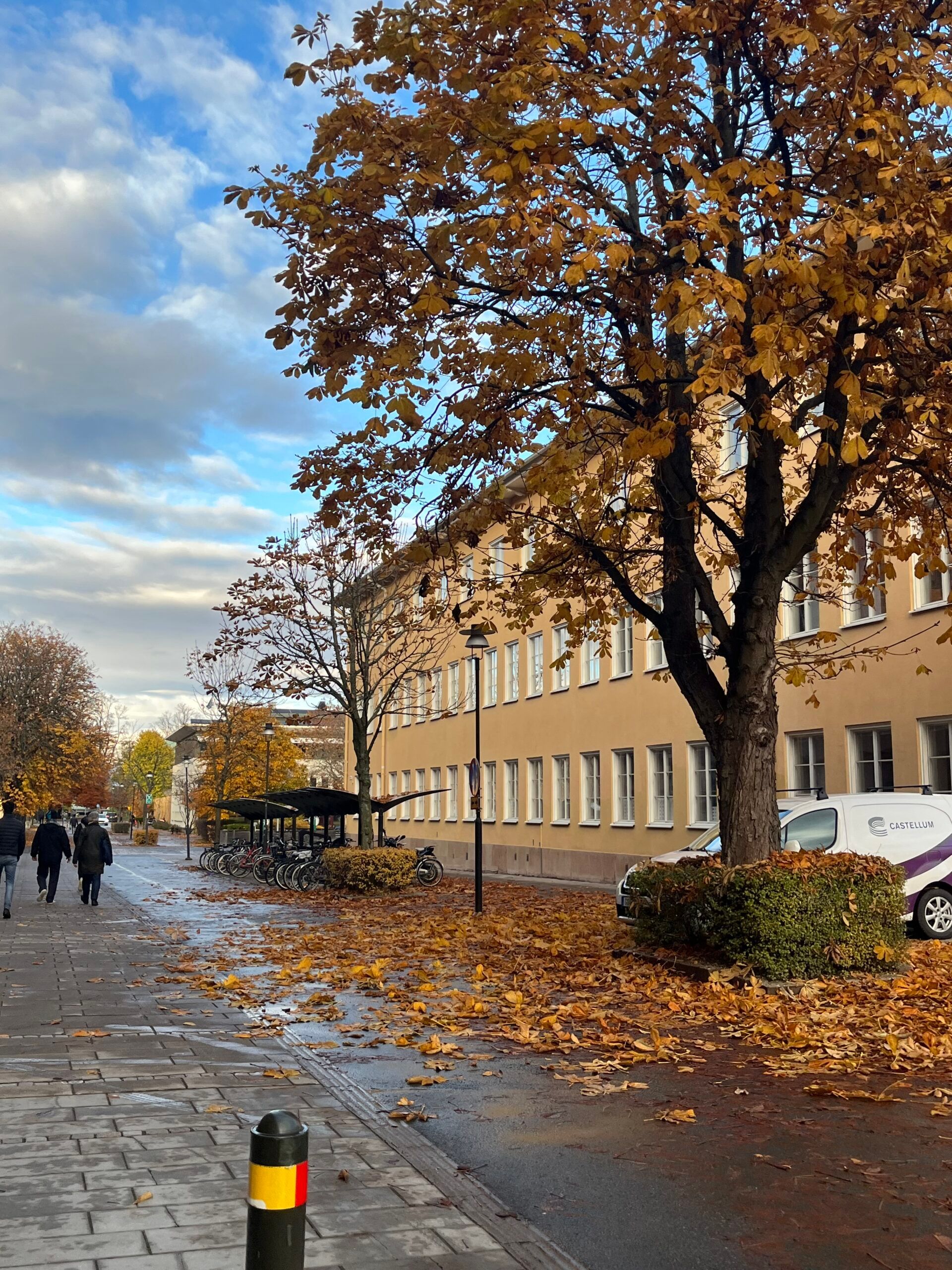
Are you still living in that same accommodation?
“After that, I moved to another student accommodation which I secured by myself through a housing queue. So I signed up, someone had told about it, and I’m closer to university I’m paying pretty much the same amount rent. It was a student housing queue and it was one of those that have student accommodation throughout the country. So registered and I was lucky enough that I was looking for apartments during January, and it was literally like I had one point in the queue, and I was going through the apartments and I was just pressing apply, and I got accepted to one.”
So Let’s actually talk about education in the university itself. What’s the academic environment like?
Chris has been pleased with the academic environment at JU. He spoke highly of his professors, describing them as approachable and supportive. “I’ve been pleased with the professors with their relative leniency when it comes to assignments, exams, grading and being open and willing to talk to us, communicate and answer questions. They’ve always been super helpful and willing to prove extra recourses. I’ve gotten all the material and resources that i needed to understand and truly excel. It is definitely more relaxed and chill in Sweden. In my first year when the only thing I was doing was studying, I still had a lot of free time, considering I only had like 2 exams per term.”
Additionally, according to Chris, JU also offers lots of support services. “I would say the university had helped a lot in terms of career advise. They offer me a lot of work shops, linked in workshops, CV workshops, they offer like CV photoshoots like once every semester. They offer a lot of help when it comes to studying, understanding how the academic of all works, like referencing and using academic software, the library is amazing at that.”
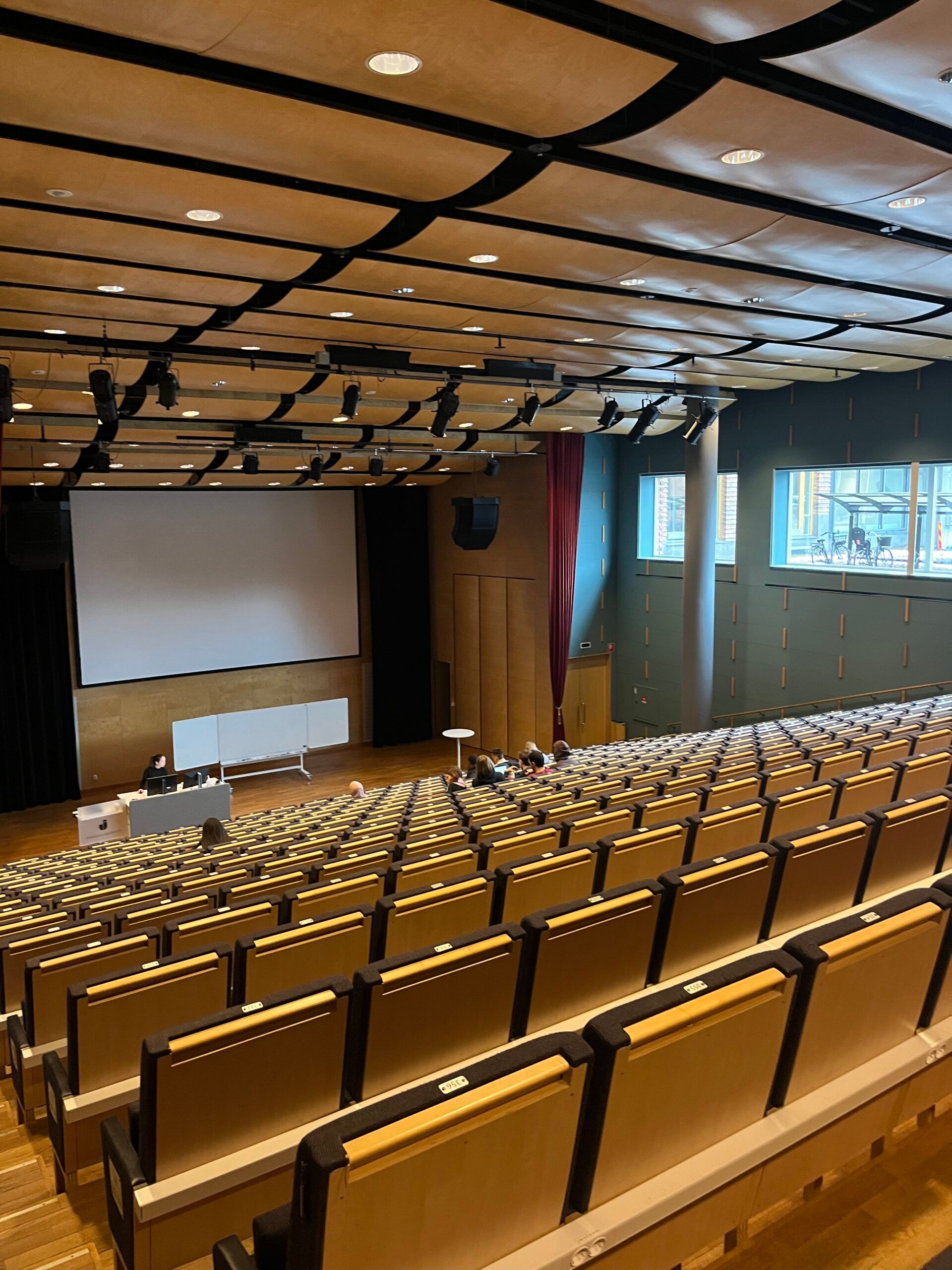
How about student activities? Are there any active associations and clubs?
Jönköping might be calm, but its student life is anything but dull. “There’s literally something for everyone,” Chris told me. Whether it’s sports, books, media, finance, or entrepreneurship, the range of student associations is broad.
“In terms of student life outside of uni, there are a few options. There are parties, an option to go out at night if you want to… there’s a student club option and there are other independently run options organized by students. I think they are pretty fun and they fit different tastes in general.” However, Chris also added that he is not that keen on them at the moment. “during the first year I used to go all the time, now I’m not going. So it’s all because it’s always the same people in every single party, so it’s not a different experience in going out and meeting new people. But, I have to say, there are people that love it every time and it never gets boring, so obviously I think it’s personal preference.”
“I think the student life in Jönköping is amazing for students that love to go out, socialize all the time and just do crazy shit in general.”
A lot of students are looking for a part-time job. How would you say it’s like in Jönköping?
Like many international students, Chris explored part-time job opportunities during his first year. “I analysed it a lot,” he said, breaking it down into categories. Retail and hospitality jobs, like cafés, hotels, or clothing stores, are tough to land without fluent Swedish. “Those jobs are like 95% reserved for Swedish-speaking people. So if you’re an international student who comes and you don’t speak Swedish, you’re already at a disadvantage. . The only way I could say you can get a job in those places, is there are ways you can and there are people I know who have done this, but the only way is knowing and having someone that can put you in the job. That’s honestly why I love networking and I emphasize networking all the time when I talk about jobs.”
The city also has warehousing and logistics opportunities, which are less language-heavy, but still competitive. Internships, especially in startups, are another route.”Those really don’t qualify as part-time jobs, but I do have to mention them in terms of opportunities. There are some internship opportunities , especially when it comes to start-up or student start-ups. And of course, being a student city, they are very competitive.”

So would you say it’s a requirement to learn Swedish?
“I think it’s great if you want to learn Swedish in general. Like it helps a lot. It’s definitely not necessary, but considering the age demographic in Jönköping, you usually encounter a lot of people that don’t speak English.” I can also relate to this, since I live in Skövde which is also a small city, and I have encountered, especially elderly people that don’t speak English and want to talk to you.
“The biggest problem I encounter, not knowing Swedish that good, is in the pharmacy, because I speak English and the worker there can’t really assist me in the way that I want. It’s sometimes even calling different services. But any of the basic things you would need every day, like groceries or the university, Jönköping is fully equipped with people who speak English, because it’s a very international city as well.”
Are you happy with your decision on moving to Sweden?
“Yes, a 1000%. I think Sweden is the best place for me to be in right now. I’ve never been to Sweden before. Jönköping is the first city I visited in Sweden ever, and although I don’t think the city is the perfect fit for me to live in in general, I feel very happy with my decision to be here.”
Chris explained that starting out in Jönköping helped him ease into life in Sweden in a way that may not have been possible in a larger city. “I think it gave me a great jumpstart in the country. It gave me the opportunity to develop a close social circle, which would’ve been less close-knit if I were in a larger city like Stockholm.
He also described how the city’s slower pace and smaller scale pushed him to explore new activities and personal interests. “”It gave me the opportunity, and this is really weird, but since there aren’t a lot of things to do here, it gave me the drive to look for things to do outside fo the spectrum of my studies. Initially, I looked into associations and I participated in those associations, and it was really fun, bu I also think Jönköping gave me a look into things that are happening in Sweden in general, events stuff like that, job opportunities, like which events can I attend which trips can I take? Stuff like that.”
He added, “I also agree with what he said, adding that even I don’t think I would have formed the friendships I have now if I lived in a bigger city, or that it would’ve been harder to do some, with how busy it is and all the things to do. I mention that living in a smaller city, I think the community is more close-knit.”
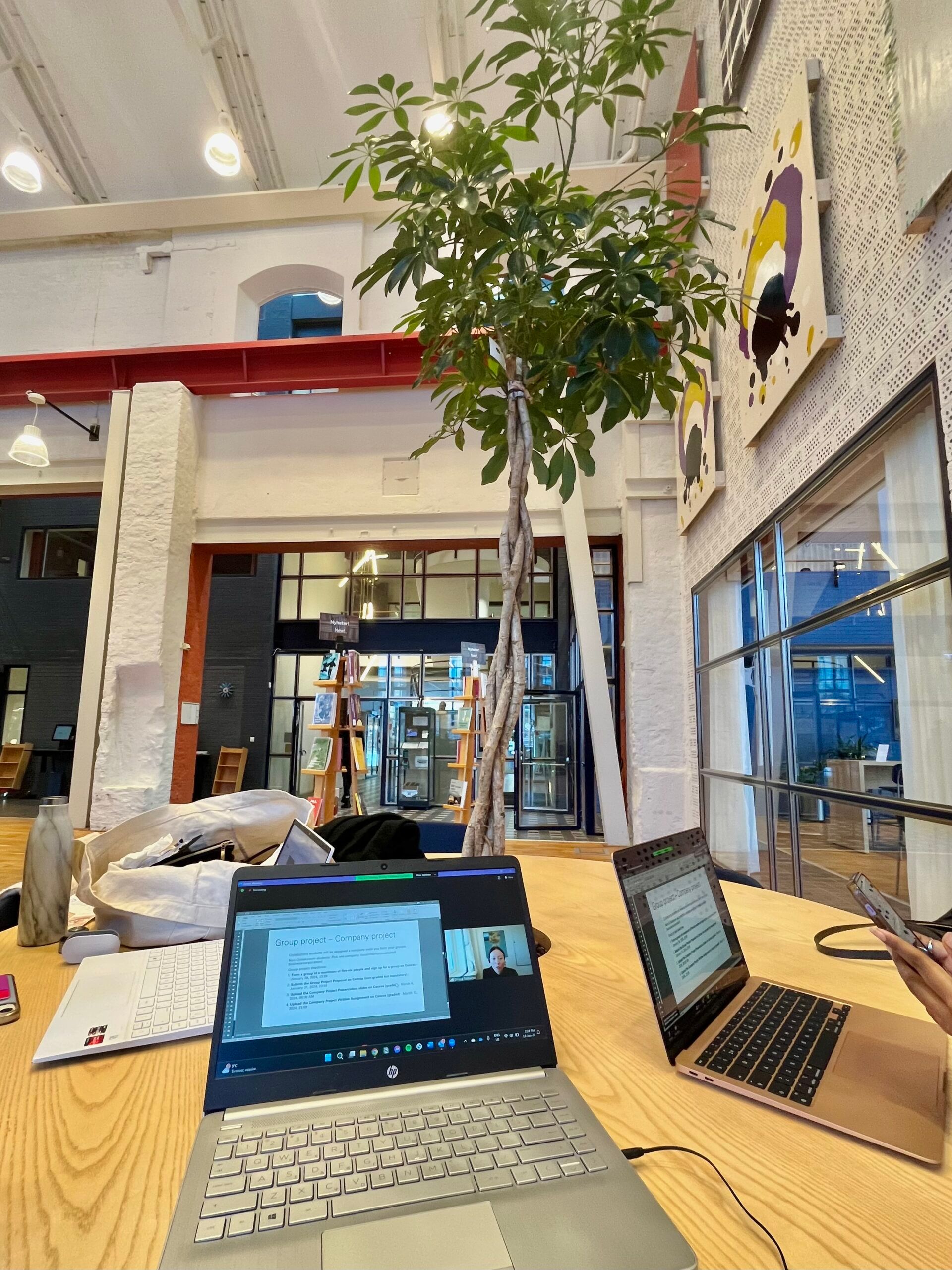
What advice would you give to students who are coming next year?
“I would say keep an open mind. That was something that I didn’t do in the beginning. I gave the city a chance and kept giving it chances, every time I felt like my experience of the city had become stagnant and repetitive.” He emphasized that this mindset applies to any place you live: “I think that honestly goes for any city that you live in, and every time I did that I got more surprised.”
Chris encouraged new students to be curious, explore on their own, and not wait for experiences to come to them.
“So for people coming in, I would say watch out for things that are happening around you. Feel free to just go out by yourself, kind of get lost in the city, like it’s not that big where that would be a concern, take a chance to walk around and find the hidden gems and truly develop your own perspective of the city.”
He also shared a thoughtful realization about the nature of studying abroad and how it evolves over time. “This is like a recent development I had, but like at the beginning you think there’s like an adjustment period when studying abroad, but it doesn’t work like that. In my experience there is no adjustment period because it’s always going to give you new experiences, new feelings, new perspectives, new everything every single day.”
Finishing Thoughts
Talking to Chris gave me way more than just a quick look into student life in Jönköping. It was a really honest, real-life insight into what studying abroad is actually like. The ups, the downs, the random moments that make it all feel worth it. Whether you’re thinking about JU because of the program, the international vibe, or just the idea of trying something completely new, Chris’s story is a reminder that it’s not just about where you end up. It’s about what you do with the experience once you’re there.
